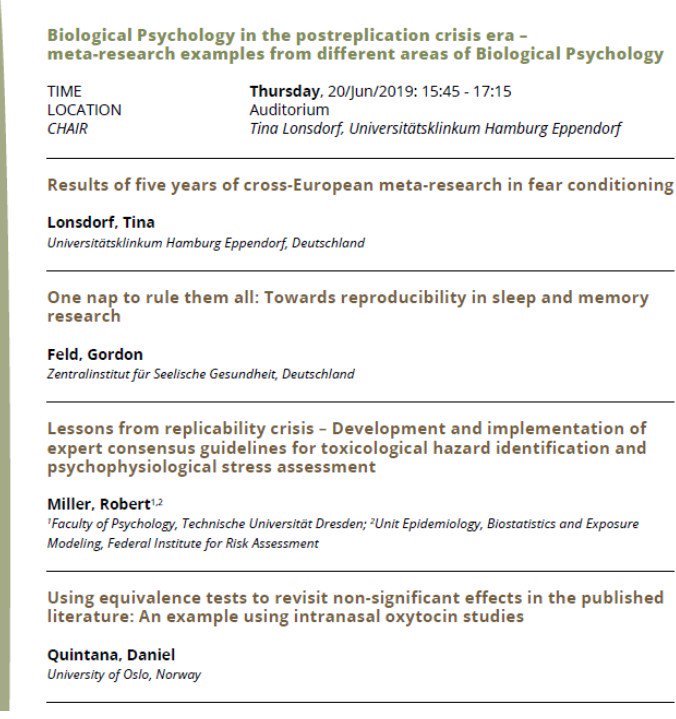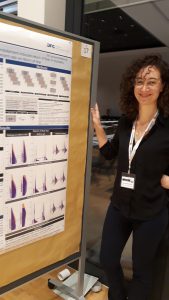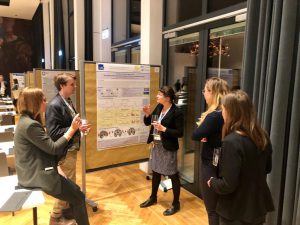Tina chaired a symposium at the (virtual) annual meeting of the Society for Psychophysiology (SPR) which showcased recent examples tackling the ‘replicability’ of ‘Open and Reproducible’ science practices in psychophysiological research. Three talks (Peter Clayson, Tampa, US; Andreas Keil, Gainsville, US; Manuel Kuhn, Boston, US) focused on multiverse analyses in EEG and skin conductance, one talk focused on an inventory of open data (Tina) and one (Michael Larsson) on the open access advantage by using electrophysiological research as a case example. You can find the video of Tina virtual talk below.
The lab at PUG 2019 in Dresden
Tina attended the 2019 annual conference “Psychology and Brain” in beautiful Dresden. Tina chaired a symposium on meta-research (see picture). You can find my talk and poster on Extinction retention at OSF.

European Meeting on Human Fear Conditioning 2019
The whole group attended the European meeting on Human Fear Conditioning in Würburg, Germany from May 6th to May 8th! We enjoyed two intense and inspiring poster sessions themed “From Fear to Beer” and “the return of Fear and Beer” – yet most of us chose local franconian wine over bear.
Rachel presented a poster on experimental boundary conditions in fear reinstatement in humans – great work using Bayesian Statistics and illustrated by raincloud plots.
Manuel and Maren had prepared a poster showing the first results of our prospective, longitudinal study on the impact of life adversity on fear conditioning, extinction and return of fear. A massive study with N=120 in which particpants underwent a 2-day paradigm at baseline and after 6 month. The study is still ongoing as participants are followed up by questionnaires regularly.
Tina gave a talk presenting a summay of meta-research done in the context of the EIFEL-ROF network during the past years. The slides are available online at OSF. I was overwhelmed by the postive, encouraging and appreciative feedback on this work – particularly by Early Career Researchers.


